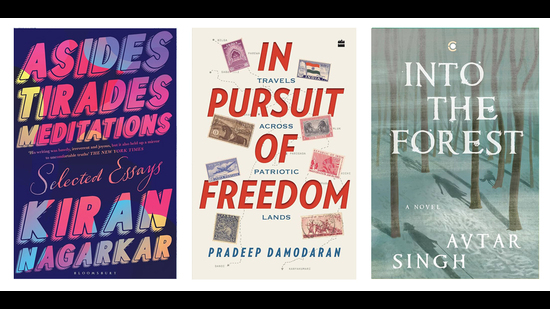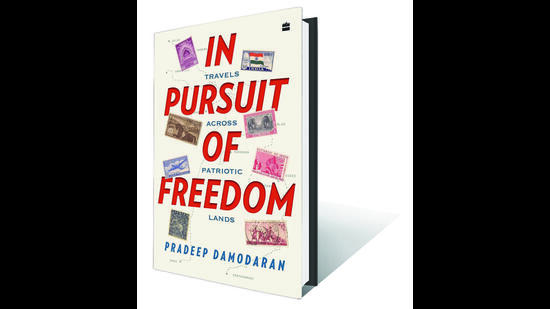HT Picks; New Reads
On the reading list this week is a book that traverses places that played an important role in the Independence movement and those of contemporary significance, a selection of Kiran Nagarkar’s writing, and a novel about migration and belonging
A narrative of today’s India


Embark on a resplendent journey alongside writer Pradeep Damodaran, as he follows the fault lines of freedom and independence in contemporary India and paints a vivid portrait of a nation in flux.
Damodaran travels the length and breadth of the country – from places that played an important role in the Independence movement, such as Sabarmati, Dandi and Jhansi, to sites of contemporary significance, like Nandigram, Unnao and Kudankulam – meeting survivors of riots, descendants of freedom fighters, social workers, environmental activists, farmers and ordinary citizens to discover what freedom means to them.
A genre-bending book, In Pursuit of Freedom touches upon several critical issues – religion, economic disparity, gender, environment, politics – as it blends travelogue and memoir, history and current affairs. Spectacular and insightful, this on-the-ground narrative of today’s India is a must-read.*
From Bollywood to world religions and more

Not only was Kiran Nagarkar an excellent novelist, he was also an astute critic – eclectic in taste and literary in perspective. Asides, Tirades and Meditations is a selection of writings that spans decades of his work and covers a range of themes that most preoccupied him: from Bollywood and cinema to Bombay’s colonial and postcolonial histories; from commentary on Indian and international politics to world religions.
Nagarkar writes about other writers and books that influenced him and also provides deeply retrospective commentary on his own writing. Many of these themes can be further broken down to cover an evolving Bombay, questions of personal and collective memory, the role of the artist in today’s world, and ruminations on culture, world history, and Nagarkar’s own childhood, life and work.*
Only connect

‘Why do you want to know about what happened, bhai?’The older man mentions a paper in the UK that may be interested in what happened to Nabi. Its politics are impeccable. His story will resonate there.Nabi looks unconvinced.‘People must know our stories,’ says the reporter.‘Why? What good does it do?’
There are three disappearances; they could all be ‘crimes’, but only one of them ends up in murder. Germany, with its unique fractures, is the perfect setting. This story could only be about women. Yet, this is also a novel about the human condition anywhere, everywhere.Into the Forest is about loneliness and isolation, migration and belonging. It is also about how times of great stress are both brake and accelerant to human connection.*
*All copy from book flap.






